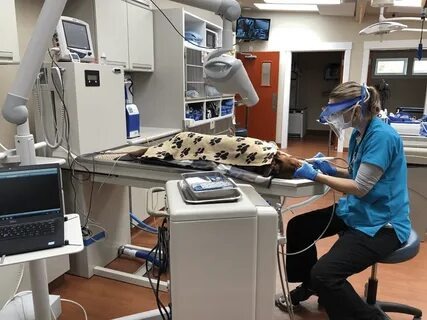Starting a veterinary clinic in Canada can be a costly project, especially for small business owners and young entrepreneurs. One of the smartest strategies to reduce setup costs is by investing in used veterinary equipment. It allows startups to access quality tools at a lower price, making their clinic operational without financial stress.
This guide will help you understand why used veterinary tools are valuable, what items to consider, and how to find reliable equipment in Canada.
Why Canadian Startups Should Consider Used Veterinary Equipment
Veterinary startups often operate on tight budgets. New equipment can cost thousands of dollars, which is a challenge for many beginners. By choosing used veterinary equipment, startups can:
- Cut initial investment costs
- Access high-quality brands at reduced prices
- Launch operations faster without waiting for funding
- Focus more budget on staff and marketing
Startups can still offer excellent care with used tools if they select the right items and ensure quality standards.
Common Types of Used Veterinary Equipment You Can Find
There’s a wide range of used tools available in Canada. Here are some essential categories that startups often search for:
Diagnostic Equipment
This includes:
- Digital X-ray machines
- Ultrasound scanners
- Blood analyzers
- Endoscopy units
These tools help detect internal issues and are often very expensive when bought new. Many used diagnostic tools still perform well for years.
Surgical Instruments
You can find:
- Surgical tables
- Autoclaves for sterilization
- Surgical lights
- Electrosurgical units
These tools are vital for surgical procedures. Make sure the used equipment has been maintained properly.
Dental Tools
Used dental equipment such as:
- Dental X-ray units
- Ultrasonic scalers
- High-speed handpieces
Dental care is a growing service in veterinary clinics, and quality tools improve your service range.
Examination and Monitoring Tools
This includes:
- Stethoscopes
- Pulse oximeters
- Thermometers
- Blood pressure monitors
Startups need reliable monitoring tools to track patient health before and after treatment.
Animal Handling and Restraint Tools
Some examples:
- Examination tables with restraints
- Animal cages and kennels
- Muzzles and leashes
These tools ensure safety for both animals and staff, and are often available in lightly used condition.
Benefits of Buying Used Veterinary Equipment in Canada
Besides cost savings, there are other strong reasons to choose used equipment:
Access to Trusted Brands
Used tools from premium manufacturers often come at a much lower price. You can afford brands that offer durability and precision.
Lower Depreciation
New veterinary tools lose value quickly. Buying used helps you avoid heavy depreciation while retaining resale value.
Environment-Friendly Choice
Buying used equipment reduces waste and supports sustainability. You give tools a second life instead of adding to landfill.
Easier Expansion
Lower upfront costs make it easier to expand your clinic or add more services over time.
Risks to Avoid When Buying Used Veterinary Equipment
To make a smart purchase, you must avoid common mistakes. Here’s what to look out for:
Lack of Warranty
Used items often come without warranty. Always ask the seller about return or service policies.
Poor Maintenance History
Avoid tools that were not properly maintained. Ask for maintenance records or certificates.
Outdated Technology
Some tools may be too old to meet current standards. Choose equipment that still matches modern veterinary needs.
Hidden Damages
Inspect all equipment carefully or hire a technician to check its functionality.
Where to Buy Used Veterinary Equipment in Canada
There are several reliable options to explore:
Specialized Veterinary Suppliers
Some Canadian companies sell certified pre-owned tools. These suppliers test and restore equipment before sale.
Examples include:
- DRE Veterinary Canada
- Veterinary Outfitters Inc.
- Keebovet Canada
Online Marketplaces
You can also find deals on:
- Kijiji
- Facebook Marketplace
- eBay Canada
Make sure to meet sellers in person and verify the equipment before purchase.
Auctions and Estate Sales
Sometimes, veterinary clinics close or upgrade their inventory. Attending auctions or estate sales can lead to affordable equipment.
Industry Forums and Groups
Join veterinary groups on LinkedIn or Facebook. Other professionals may share leads or sell their tools directly.
How to Inspect and Verify Used Equipment Before Buying
Here are simple steps to follow:
Check Serial Numbers
Always verify serial numbers with the manufacturer to ensure authenticity.
Inspect for Rust or Cracks
Rust and cracks are signs of wear and tear. Avoid such tools, especially for surgical use.
Test Equipment in Person
Ask the seller to demonstrate the working condition of the tool.
Review Documentation
Look for manuals, service records, and previous usage details.
Ask About Refurbishment
If the equipment was refurbished, request details on what parts were replaced or repaired.
Tips for Negotiating the Best Price
To get the best deal:
- Research new vs. used pricing beforehand
- Ask for bundle deals if buying multiple tools
- Be open to light wear if functionality is intact
- Offer to pick up locally to avoid shipping fees
- Don’t be afraid to walk away if the price seems high
Being polite but firm helps in getting fair prices.
Best Practices for Maintaining Used Equipment
Even used veterinary tools can serve for years if properly maintained. Here’s how:
- Schedule regular inspections
- Clean tools after every use
- Keep equipment manuals for troubleshooting
- Replace worn parts quickly
- Train staff on proper usage
Consistent care reduces downtime and extends the life of your investment.
Legal and Regulatory Factors to Keep in Mind
Startups must follow Canadian veterinary laws and guidelines:
- Ensure equipment meets provincial safety regulations
- Use approved sterilization methods for reused tools
- Maintain patient records as required by law
- Never reuse single-use items like needles or gloves
- Stay updated with standards from the Canadian Veterinary Medical Association (CVMA)
Operating legally builds trust and avoids fines.
Choosing the Right Equipment for Your Clinic’s Needs
Each startup clinic has different goals. Choose equipment that fits your service model. For example:
- A small pet clinic may focus more on dental and basic surgical tools
- A rural animal hospital may need diagnostic and large animal equipment
- Mobile vets may prefer compact, portable tools
Buy only what you need. You can always upgrade later as your clinic grows.
Final Thoughts to Guide Your Decision
Used veterinary equipment offers a practical solution for Canadian startups that want to provide excellent care without high costs. By choosing wisely, inspecting carefully, and maintaining tools properly, new clinics can build strong foundations while staying within budget.
Starting with used equipment doesn’t mean compromising on care. Instead, it reflects smart planning, resourcefulness, and business sense.
Use this guide to make confident choices, find trusted sellers, and create a veterinary clinic that thrives from day one.






